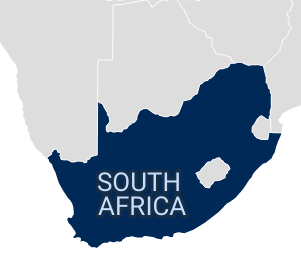By: Colin Almeleh, Director of Knowledge, Information and Data Solutions (KiDS) at Ilifa Labantwana

USAID CATALYZE ECCE Together for Early Childhood Evidence (T4ECE) is an initiative implemented by Palladium through ECD Measure at the University of Nebraska Medical Center. Learn more here. USAID CATALYZE ECCE T4ECE (CATALYZE T4ECE) convenes government officials, researchers, and other stakeholders interested in pre-primary data and measurement. The consortium facilitates cross-country learning on how pre-primary systems can better use data to improve young children’s early learning experiences.
This blog series highlights the perspectives of ECCE research and learning stakeholders under CATALYZE T4ECE and the broader community. Our latest blog features Colin Almeleh, Director of Knowledge, Information and Data Solutions (KiDS) at Ilifa Labantwana, A CATALYZE T4ECE South Africa Trask Force member.
Introduction (By Jem Heinzel-Nelson Alvarenga, Director of Implementation at ECD Measure)
South Africa has been part of our consortium since the initiative’s inception in 2018. Over the past five years, we have seen a lot happen on the ECD data and measurement landscape in South Africa, including the transfer of the ECD mandate from the Department of Social Development (DSD) to the Department of Basic Education (DBE). With this shift, the DBE has led a tremendous effort to improve the availability of data to allow for evidence-informed decision making. In particular, since 2021, there have been several key multi-stakeholder initiatives related to increasing the use and availability of data including the ECD census, the Thrive by Five Index (which T4ECE supported under Phase 2), the ECD Baseline Audit, as well as other complementing studies and assessments. At the same time, multiple data management tools, information and reporting systems, and frameworks have been developed to enable routine reporting on ECD in the country. The growing and dynamic suite of ECD information products by the DBE and its social partners places South Africa on excellent footing towards building a robust ECD information ecosystem.
In this blog, we interview Colin Almeleh, Director at Ilifa Labantwana, a South African program that works with government and civil society to reform the systems necessary to enable universal access to childhood development services and a representative on the CATALYZE T4ECE South Africa Task Force. Over the next year, our team will be supporting the T4ECE South Africa Task Force (comprising of DBE, Ilifa Labantwana, DataDrive 2030, USAID and other partners) as they build consensus around a set of key indicators to be included in a new ECD Monitoring and Evaluation (M&E) Framework for the National ECD Policy. The purpose of this framework will be for the various government departments to report collectively on progress with regard to service delivery and ultimately, improved child outcomes across all the domains of ECD as defined in South Africa’s National Integrated ECD Policy and which mirrors those in the Nurturing Care Framework. The development of this new M&E framework for ECD is a key step towards bringing all the existing data sources and systems in a meaningful way that directly ties into the government’s population-based planning process.
Learn more from Colin as he reflects on past progress on ECD measurement systems in South Africa, and what is to come through CATALYZE T4ECE.
What are you most excited about over the next year when it comes to the ECD data and measurement landscape in South Africa?
There are many new and exciting initiatives led by the National Department of Basic Education in partnership with social sector partners that will reinforce the progress that we have made over the past couple years. Firstly, the second iteration of the Thrive by Five (Tb5) Index survey will be conducted. The first Tb5 Index was the first nationally representative survey of developmental outcomes amongst 4–5-year-olds in early learning programmes in South Africa. The second major initiative is the work being done to improve the administrative data capabilities for ECD. This project, again a partnership between government of social partners, is using a change management approach to support all of the provinces to improve routine data collection and continuously update the ECD database that was generated from the 2021 ECD Census. With support from the Lego Foundation, the DBE and Ilifa are also in the process of designing and building a new Early Childhood Administration and Reporting System (eCares) to be the future administrative backbone of ECD service delivery in SA.
What are current gaps when it comes to ECD data use in South Africa?
While South Africa is privileged to have lots of available data, there is never enough. We need to approach data from three key perspectives. Firstly, we need to look at data use from the perspective of: 1) data collection; 2) data synthesis; and 3) data analysis. In other words, once we collect the right data, we need to bring it together, and then analyze it in a way that is useful for decision making and resource allocation. Secondly, we need to look at ECD from a broad perspective – as articulated in our National Integrated ECD Policy which is reflective of the Nurturing Care Framework. By this, we mean that ECD data is not just from early learning programmes, but also includes the socio-economic conditions in which children and their caregivers live, nutrition, maternal and child health, caregiver support, and income and social protection (we call this the essential package of ECD services). Thirdly, we need to look at the kinds of data that are collected and used to support decision making. And by this we mean the combination of routine and administrative data, population survey data, and research data.
Our efforts at Ilifa, working closely with partners like the DBE and DataDrive2030 are focused on two main data use gaps: 1) building the administrative data capabilities in government for early learning in order to monitor and support the over 50,000 mostly informal early learning programmes in South Africa; and 2) bringing all of the data sources from across the essential package of ECD services together in a way that government and the wider sector can have a comprehensive understanding of whether children are making progress from a developmental perspective. Over the years, we have started to do this through our South African Early Childhood Review publication that synthesizes publicly available ECD data from across the Essential Package. This particular CATALYZE T4ECE project builds on our previous work and is focused on thinking through how ECD data synthesis and analysis can be directly applied to and operationalized in government’s ECD M&E frameworks and tracking systems.
How will the CATALYZE T4ECE-supported project help address those gaps?
CATALYZE T4ECE is specifically targeted at the synthesis, analysis and usage part of the data use challenge that we articulated previously. We are very fortunate to have the Thrive by Five data being collected for the second time in 2024, three years after the first round. We have the opportunity to think through the ways in which children’s developmental outcomes at the point of entering formal schooling, are driven by the range of underlying outcomes and their relationship to service access and utilization. The issue that we face is that while we often complain about too little data, we do not do enough with what we have. In our case, we have dozens of outcomes and service utilization indicators for each of the components of the essential package of ECD services. CATALYZE T4ECE will support our efforts to build consensus with a range of government departments (e.g. Health, Education, Social Development) and social partners on a reduced set of the most important of these indicators. Our aim is to then determine the set of indicators that can be built into government tracking systems through a new M&E Framework for the National Integrated ECD Policy. In practical terms, we want to know which are the most important indicators to monitor between Thrive by Five surveys, and which can give the country an ongoing sense of how it is progressing towards its goals of ensuring all children start formal schooling on track regardless of their socio-economic background.
How do you envision this project supporting or being useful to countries beyond South Africa?
Most countries are grappling with the same issues as South Africa, i.e., how to combine administrative data and research survey data in a way that helps increase quality access to ECD services? How does a country operationalize the set of complex contributors to improving child outcomes?
We are fortunate in South Africa. The collaborative development of the Early Learning Outcomes Measure (ELOM) and its routine use in South Africa through the Thrive by Five survey is on the cutting edge of ECD monitoring and measurement in the Global South. Now, we have the opportunity to apply similarly innovative approaches to population-wide monitoring systems. Being part of the CATALYZE T4ECE family offers a mechanism through which South Africa’s experience can support those of our sister countries in the Global South.
Cross-posted on the ECD Measure website.

This blog is made possible by the generous support of the American people through the Office of Education, Bureau for Africa, U.S. Agency for International Development (USAID) under the terms of contract No. 7200AA19C00080, subcontract CATALYZE-Edu-CR-2023-0352. The contents are developed by the ECD Measure group hosted at the University of Nebraska Medical Center and do not necessarily reflect the views of USAID or the United States Government.
